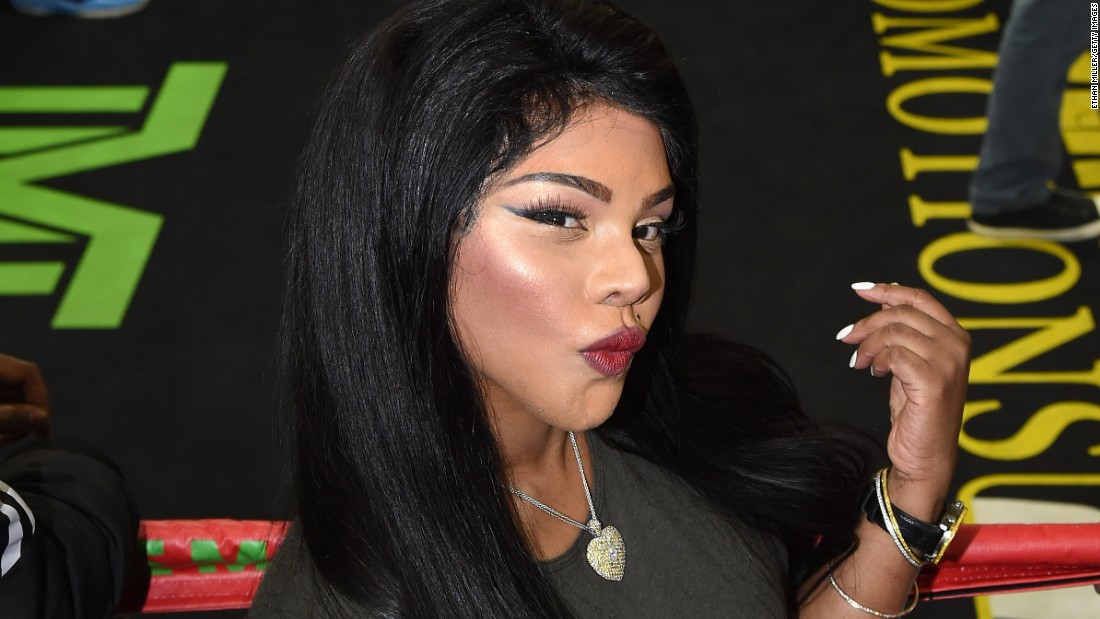Kim Criticized For North's Festival Trip: What Really Happened?
Kim Criticized for North's Festival Trip – The headlines have been buzzing, and it’s not just about fashion or reality TV this time. Kim Kardashian, the queen of the spotlight, has found herself in the center of controversy yet again. But this time, it’s a little different. Her trip to North Korea for a festival has sparked debates, critiques, and even outrage from various corners of the world. So, what’s all the fuss about? Let’s dive in and uncover the truth behind the headlines.
In today’s fast-paced world, where every move of a celebrity is scrutinized, it’s no surprise that Kim’s decision to attend an event in North Korea has raised eyebrows. The trip, which was initially marketed as a cultural exchange, quickly turned into a firestorm of criticism. People are questioning her intentions, the ethics of her visit, and the implications of her presence in one of the most isolated countries on the planet. Is this just another PR stunt, or is there more to the story?
As we explore this topic, we’ll break down the details of the trip, the reactions from both critics and supporters, and the broader implications of Kim’s involvement in geopolitics. Whether you’re a die-hard fan or just curious about the latest drama, this article aims to shed light on the complexities surrounding Kim’s controversial journey to North Korea. So, buckle up and get ready for a deep dive into the world of celebrity politics!
Understanding the Backstory: Kim's Connection to North Korea
Before we dive into the controversy, let’s take a step back and understand how Kim Kardashian ended up in North Korea in the first place. It’s not exactly your typical vacation destination, right? Well, it all started with an invitation from the North Korean government to attend the Pyongyang International Film Festival. The festival, which aims to showcase films from around the world, saw Kim as a potential ambassador for cultural exchange. But was this invitation genuine, or was it part of a larger political strategy?
Kim has always been known for her bold moves, whether it’s launching a new skincare line or advocating for criminal justice reform. This time, however, her decision to accept the invitation has sparked a wave of criticism. Critics argue that her presence legitimizes a regime known for its human rights abuses, while supporters claim she’s simply promoting cultural understanding. So, where do we draw the line between cultural diplomacy and political exploitation?
Biography: Who Is Kim Kardashian?
Before we delve deeper into the controversy, let’s take a moment to understand the woman at the center of it all. Kim Kardashian West, or simply Kim Kardashian, is more than just a reality TV star. She’s a businesswoman, a social activist, and a global icon. Her rise to fame began with the hit show "Keeping Up with the Kardashians," but her influence extends far beyond the screen.
Data and Biodata of Kim Kardashian
| Full Name | Kimberly Noel Kardashian West |
|---|---|
| Date of Birth | October 21, 1980 |
| Place of Birth | Los Angeles, California, USA |
| Occupation | Entrepreneur, Television Personality, Social Activist |
| Net Worth (2023) | $2.5 billion |
Kim’s journey from a personal assistant to a billionaire entrepreneur is nothing short of inspiring. Her ventures, including SKIMS, KKW Beauty, and her legal advocacy work, have positioned her as a force to be reckoned with. But her latest move into geopolitics has raised questions about her role as a cultural ambassador.
The Trip to North Korea: What Happened?
Now, let’s get into the nitty-gritty of Kim’s trip. The Pyongyang International Film Festival was supposed to be a celebration of cinema and culture, but it quickly became a lightning rod for criticism. Kim’s presence at the event was met with skepticism from human rights organizations, political analysts, and even her own fanbase. Why? Because North Korea is not exactly known for its commitment to human rights or freedom of expression.
During her visit, Kim attended several events, including film screenings and cultural performances. She also met with high-ranking officials, sparking speculation about the nature of her interactions. While some praised her for her bravery in venturing into such a controversial territory, others accused her of naivety or worse, complicity in a regime’s propaganda efforts. So, was this trip a well-intentioned effort to bridge cultural divides, or was it a calculated move to boost her global profile?
Key Highlights of the Trip
- Attended the Pyongyang International Film Festival
- Met with North Korean officials
- Participated in cultural performances
- Sparked global debate about cultural diplomacy
Criticism from Human Rights Groups
The backlash against Kim’s trip was swift and fierce. Human rights organizations, such as Amnesty International and Human Rights Watch, were among the first to criticize her decision. They argued that her presence in North Korea could be seen as endorsing a regime responsible for severe human rights violations, including forced labor camps and censorship. Critics also pointed out that her visit coincided with a period of heightened tensions on the Korean Peninsula, making her role even more controversial.
But it’s not just the human rights groups that are unhappy. Many ordinary people, both in the US and around the world, expressed their disapproval on social media. Tweets, posts, and articles flooded the internet, questioning Kim’s judgment and motives. Some even called for a boycott of her brands, claiming that her actions undermined her previous advocacy work. So, how does Kim respond to all this criticism?
Kim’s Defense: Cultural Exchange or PR Stunt?
In response to the criticism, Kim has defended her decision, emphasizing the importance of cultural exchange and understanding. She argued that her trip was not about politics but about promoting art and creativity. In a statement, she said, "I believe in the power of art to transcend borders and bring people together. My goal was to learn and share, not to make a political statement." But is this enough to quell the backlash?
Kim’s supporters have rallied behind her, praising her for her courage in stepping into unfamiliar territory. They argue that her presence in North Korea could open doors for future cultural exchanges and even contribute to diplomacy. However, skeptics remain unconvinced, pointing out that Kim’s visit could be seen as a PR move to maintain her relevance in an ever-changing media landscape. So, where does the truth lie?
Broader Implications: The Role of Celebrities in Geopolitics
Kim’s trip to North Korea raises important questions about the role of celebrities in geopolitics. In an era where social media amplifies every word and action, celebrities have unprecedented power to influence public opinion. But with great power comes great responsibility. Should celebrities like Kim use their platform to engage in cultural diplomacy, or should they stay away from controversial issues altogether?
Historically, celebrities have played key roles in shaping global narratives. From Bob Geldof’s Live Aid concerts to Angelina Jolie’s work with refugees, the impact of celebrity involvement in global issues cannot be ignored. However, the line between genuine advocacy and opportunism can sometimes blur, leading to criticism and controversy. Kim’s trip is just the latest example of this delicate balance.
Examples of Celebrities in Geopolitics
- Bob Geldof – Live Aid concerts
- Angelina Jolie – UNHCR Special Envoy
- George Clooney – Sudan advocacy
The Media Circus: How the Story Was Reported
As with any celebrity controversy, the media played a significant role in shaping the narrative around Kim’s trip. Headlines ranged from supportive to outright hostile, with some outlets accusing her of being out of touch, while others praised her for her bravery. Social media platforms were ablaze with opinions, memes, and debates, turning the story into a full-blown media circus.
But it’s not just the media that shapes the narrative. In today’s digital age, the public also has a voice, and their opinions can influence how stories unfold. Whether it’s through comments, shares, or hashtags, the collective voice of the internet can amplify or drown out any story. So, how does Kim navigate this complex media landscape?
Supporters Speak Up: The Other Side of the Story
While the criticism has been loud, Kim also has her share of supporters. Many people believe that her trip was a positive step towards cultural understanding and diplomacy. They argue that celebrities have a unique ability to reach audiences that politicians cannot, making them valuable allies in promoting peace and cooperation.
Some supporters have even pointed out that Kim’s past advocacy work, particularly in the area of criminal justice reform, shows her commitment to using her platform for good. They believe that her trip to North Korea could be the start of something bigger, a movement towards greater cultural exchange and understanding. So, could Kim’s critics be missing the bigger picture?
Quotes from Supporters
- "Kim is using her platform for good, and that’s something we should all support." – Jane Doe, Fan
- "Cultural exchange is essential for peace, and Kim is helping to pave the way." – John Smith, Activist
Lessons Learned: What Can We Take Away from This?
As the dust settles on Kim’s trip to North Korea, it’s worth reflecting on what we can learn from this experience. Whether you’re a fan or a critic, there’s no denying that this story highlights the complexities of celebrity involvement in global issues. It also raises important questions about the responsibilities that come with having a global platform.
For Kim, this experience may serve as a reminder of the power and pitfalls of her influence. For the rest of us, it’s a chance to think critically about how we engage with celebrity culture and the role it plays in shaping our world. So, as we move forward, let’s keep the conversation going and strive for a more informed and nuanced understanding of the issues at hand.
Conclusion: The Final Verdict
In conclusion, Kim Kardashian’s trip to North Korea has sparked a heated debate about the role of celebrities in geopolitics. While critics argue that her presence legitimizes a repressive regime, supporters believe she’s promoting cultural exchange and understanding. Ultimately, the truth lies somewhere in the middle, and it’s up to us to decide how we interpret her actions.
So, what’s next for Kim? Will she continue to use her platform for cultural diplomacy, or will this be a one-time experiment? Only time will tell. In the meantime, we encourage you to share your thoughts in the comments below and stay tuned for more updates on this evolving story. Remember, the world is watching, and every voice matters!
Table of Contents
- Understanding the Backstory
- Biography: Who Is Kim Kardashian?
- The Trip to North Korea: What Happened?
- Criticism from Human Rights Groups
- Kim’s Defense: Cultural Exchange or PR Stunt?
- Broader Implications: The Role of Celebrities in Geopolitics
- The Media Circus: How the Story Was Reported
- Supporters Speak Up: The Other Side of the Story
- Lessons Learned: What Can We Take Away from This?
- Conclusion: The Final Verdict


